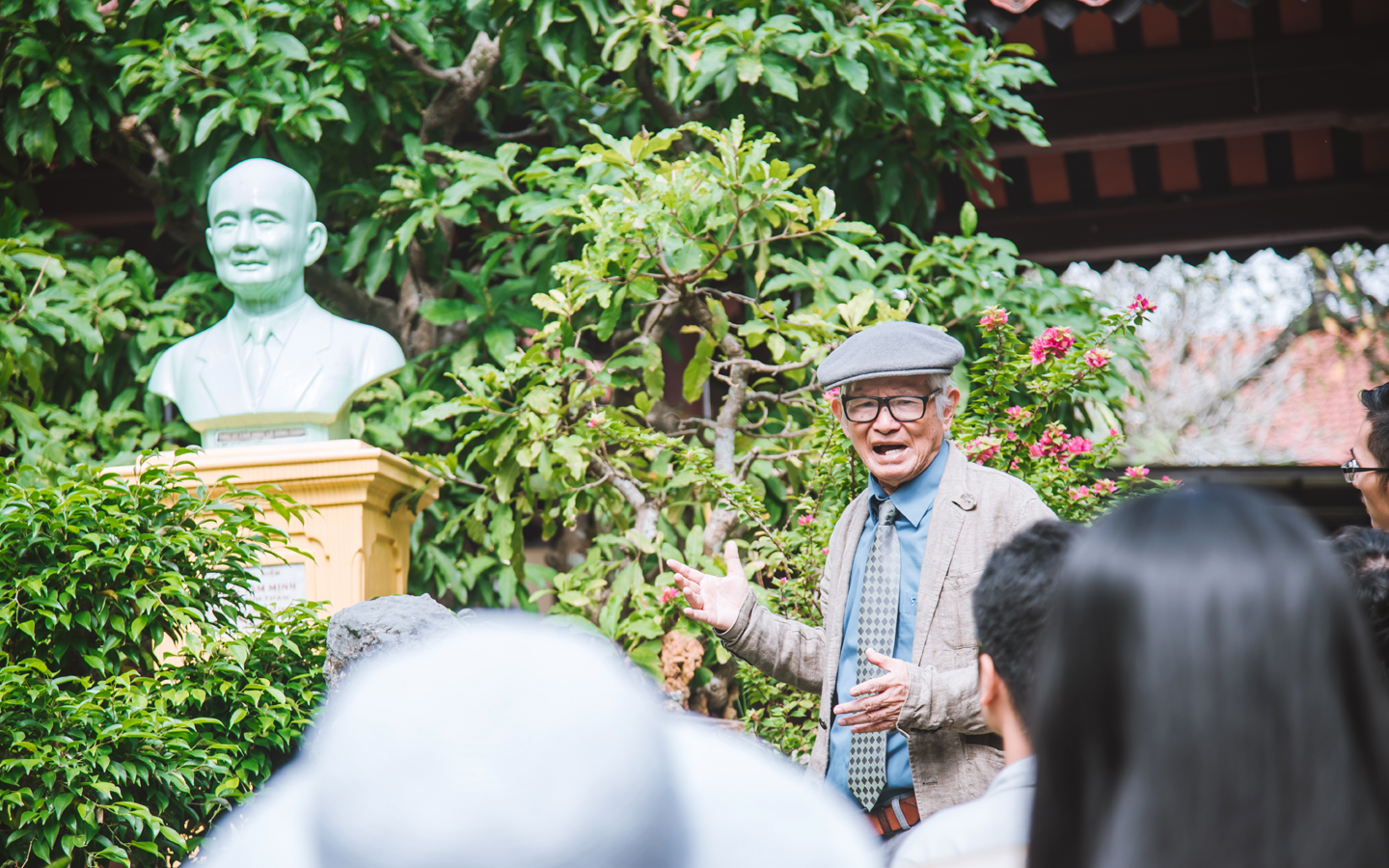
Cousin: “It’s not a surprise that you got into history major at your high school for the gifted.”
Me: “Why is that?”
Cousin: “You memorize all the important dates. You can pull historical facts out of thin air when asked. Since you were nine years old, you could cite all the Tran kings in chronological order. You are indeed a prodigy!”
– September 2015
I prided myself on being a history expert when I first started high school. Why? Here’s an example:
In 1925, the Vietnam Revolutionary Youth League was founded. This inspired the establishment of the Communist League of Indochinese, which formed the base of the Vietnamese Communist Party in 1930.
My specialty was the ability to remember and link historical facts in chronological order. Yet, I did not know, at the time, my weakness. I could not draw out the lessons history tried to teach us. I thought that it happened that way because it meant to happen that way.


I thought it was, simply, destiny. My high school experience did not really help me correct my weakness either. It, however, helped me vaguely realize that something was off.
After my first high school semester, I switched school and major, from History to English. At this new school, I became a star when it came to history. Needless to say, compared to the other students, I seemed to have quite an extensive knowledge of history.
In class, I could engage in a deep conversation on topics such as the analysis of Ho Chi Minh’s “Trường kì kháng chiến nhất định thắng lợi” (persistence ensures victory), the battle of Ap Bac and Van Tuong, or every other topics in history textbooks. And usually, I would get a 10 for such effort.
However, these discussions made me realized that something was not quite right. When I inquired further on the interpretation of a historical event or an era, either the teachers dodged the questions or their answers did not really satisfy me. I felt like something was still missing although I could not pinpoint what that was. The textbooks were not so much of help either.
I started to feel disheartened and stopped asking questions in class. In 12th grade, I still answered questions but rarely initiated discussions. My classmates must have appreciated it a lot considering I knew how frustrated – but still full of admiration – they were whenever I raised my hand in class. As seniors, I guess we all just wanted the class to end.
The fewer questions I asked in class, the more I pondered them at night. I kept asking myself why we avoided talking about history while we ourselves were writing history.
Each and everyone of us witnessed history unfolding almost everyday, for example, the 2016 U.S. Presidential Election, or the #metoo movement. If we did not understand the full truth of history, how could we learn from it and avoid following history’s footsteps?
If we did not understand what actually happened, how could we fathom the extraordinary steps a country such as ours had to go through to rise above the repeated wars and resistance we faced throughout the course of history? We would risk history being lost forever if discussions were not encouraged.
And discussions were exactly what we did in the “Vietnamese Studies” course at Fulbright.
I thought the course would be a piece of cake for someone who knew Vietnamese history by heart. “What more can I learn from this class?”, I thought to myself. Fortunately, I was proven wrong. I realized that there were many aspects of history that I overlooked but might affect the way history could betold.
For example, I did not take into account the recreation of traditions, the emplotment of historical narrative, the erasure of identities, how different sides might view a historical event, the change, the context, the causality, the contingency and the complexity of history as a whole. In the “Vietnamese Studies” course, we were asked to dive into the mess with historiography.
As one of the class requirements, we traveled to Hue to reassess not only our prior knowledge of a controversial period of history, but also our personal experience with this city. For some of us, this journey was the journey of growing up, of leaving childhood behind. Why?


It seemed as though our thinking, mindset, and belief were contested, deconstructed, and recreated everyday during that trip. Suddenly, we realized that we were no longer innocent high school students who were being told what history was.
We, as adults, have to constantly learn and adjust our outlook on history and how it should be understood. To make it even harder for us, our professors asked us to reflect on the findings by trying to narrate history with our personal experience. Endless chains of questions kept going through our minds.
Were there enough representations of different groups in the current narrative? Should we cling onto our deeply-rooted notion of textbook history or should we learn to live with the ever-changing clarification of it, and the discomfort and counter shock that come with it?
And if we followed the latter, which way could we approach and be in touch with our feelings while keeping our heads cool to take in new academic knowledge and thinking?
We emerged out of the class, constantly searching for the answers for these questions, knowing that we would never find the most satisfactory ones. We discussed then fell into complete silence. We absorbed the waves of emotions and thoughts that hit us.
We suddenly understood that history was not just about dates and events; it was about how stories were told and perceived. For the first time, our interpretation of history mattered more than how well we could cite them. It was hard; but it was how it should be.







